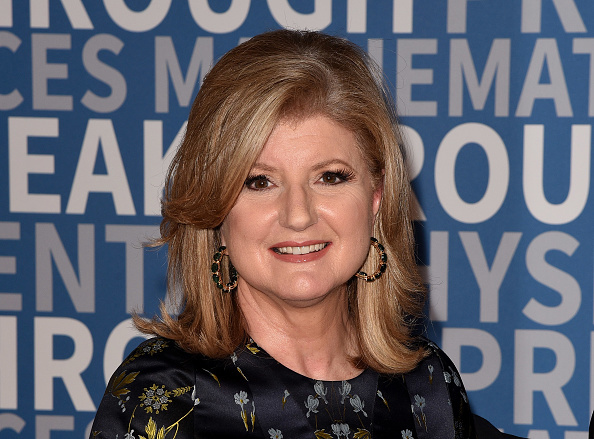Have you taken a vacation yet this summer? Way too many Americans haven’t — and won’t for rest of the year, either. But even if you’re a dedicated vacationer, as Sarah Todd writes in Quartz, if your working life is based on burnout, your vacation won’t make up for it. Todd cites astudy from Tel Aviv University that found that three weeks after a vacation, self-reported levels of burnout returned to what they were before the vacation.
While vacations are essential — and we encourage everybody to take them — much better than trying unsuccessfully to make up for burnout is to be proactive about preventing it in the first place. At Thrive we do this through what we call “Thrive Time.” It’s based on the recognition that, of course, getting results and meeting deadlines often requires putting in extra time and going the extra mile. And that’s certainly true at Thrive. Thrive Time is what allows us to sustain that. It means taking time off to recover and recharge after you’ve met the deadline, shipped the product or worked over the weekend. It could be a few hours, a morning, a whole day or even more.
Nor does Thrive Time count as vacation, or sick time, or other paid time off. And that’s an important point — it helps make very clear to employees that recovery isn’t separate from work. It’s an essential part of work. Taking Thrive Time isn’t a reward, it’s a responsibility. That’s why it also often comes at the suggestion of a manager, part of whose job is maintaining team performance and being vigilant to guard against burnout.
Thrive Time, or intentional recovery, is about looking both backward and forward — renewing what was depleted by what had to be done to meet a deadline and giving yourself the resources to meet upcoming deadlines. It’s the last stage of one project and the first stage of the next. That’s why we don’t think of it as a break, but as an essential thread of the day-to-day fabric of the work week.
The recognition that regularrecovery is necessarily connected to doing quality work has been around since ancient times. But it’s at odds with our always-on world of performative hustle culture that equates any time spent not working to time wasted. In Rest: Why You Get More Done When You Work Less, Alex Soojung-Kim Pang shows how the secret behind the breakthroughs by many of history’s most creative authors, scientists, thinkers and politicians was that they were very serious and disciplined about working rest into their work. “Recovery is active, not passive, and we can design it to get greater benefit,” Pang writes.
In a recent piece in The New York Times, Bonnie Tsui called it fallow time. “I’m not talking about vacation or weekends,” she wrote. “I’m talking about a more regular practice, built into our understanding of what work is. Fallow time is part of the work cycle, not outside of it.”
When we don’t make recovery part of that work cycle, even if we don’t completely crash, we’re perpetually on the verge. Extreme burnout is often measured in terms of absenteeism, but presenteeism — showing up for work physically, but not recharged enough to truly take it on — is not only more common but more costly. A study by Global Corporate Challenge found that employees missed an average of four days annually, but they were unproductive — though present on the job — nearly 58 days a year. And the cost difference is even more dramatic, with GCC estimating the annual cost of absenteeism to be $150 billion, while presenteeism costs up to 10 times that.
It’s costly in even more significant ways. In a Johns Hopkins study, researchers estimated that medical errors cost 250,000 lives each year in the U.S. And burnout is a big reason why. A study last yearfrom The Institute of Medicine found that when a doctor is showing signs of burnout, medical errors aremore than twice as likely to occur.
While the stakes might not be as high for most of us, the same principles apply. Operating in an up-and-down cycle of overwork-till-we-crash is not a recipe for long-term success, no matter how we rationalize why we constantly have to do it in the short-term. Better is to smooth out that cycle by incorporating intentional recovery.
The field in which this principle has been most widely adopted is also one that’s among the most metric-driven: elite sports. Here recovery has become an essential part of peak performance. Ask an NBA player about their training and you’re likely to get an answer that’s about sleep, rest and napping. Here’s how Andre Iguodala, player for the Golden State Warriors (and investor in Thrive Global), put it recently: “For people who say sleep is a luxury they can’t afford, I’m pretty harsh about my response. I’d say that’s the dumbest thing I’ve ever heard. People don’t realize how important recovery is to the mind, to the body. It affects you physically, it affects you mentally.”
At Thrive Global, Thrive Time is one of the practices allowed us to expand so rapidly since our launch and model the idea of a sustainable startup. The startup tech world is where the myth of burnout as a necessity for growth was created. But as the science shows, it’s just not true. We can perform better and for longer when we make taking time to recover and recharge an essential part of the work process.
Thrive Time is proof that well-being doesn’t mean not getting things done, or accepting a lesser career track. On the contrary, it means getting things done in a better way that allows you to continue to get things done. It’s what allows you to stay on your career track and meet your goals. It’s not about accepting less success, it’s about sustaining success. So, yes, I hope you’ll be taking an extended break from work this summer. And then I hope you’ll make Thrive Time a part of your work when you get back!


